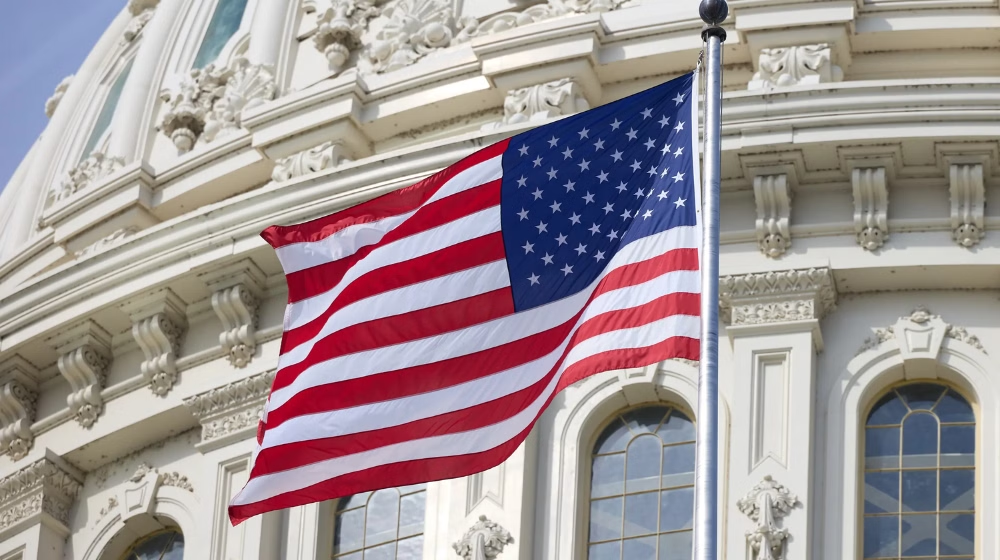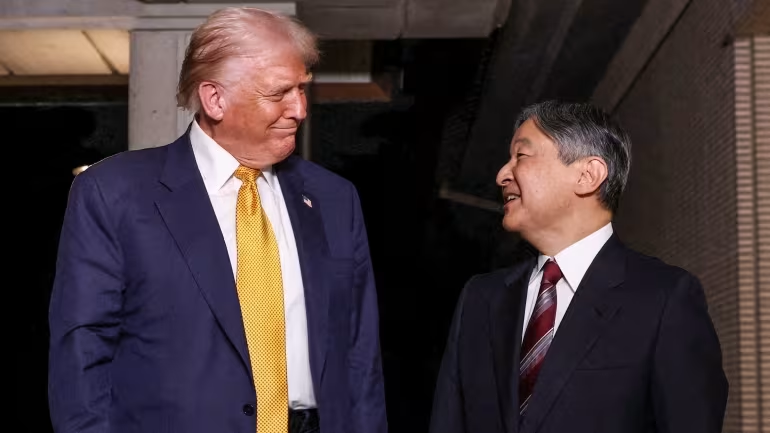The United States is set to introduce a new $250 visa integrity fee for most nonimmigrant visitors as part of former President Donald Trump’s newly passed legislation known as the One Big Beautiful Bill Act, according to a report by CNBC. This significant policy change will come into effect starting October 1, 2025, marking the beginning of the fiscal year 2025.
The visa integrity fee is expected to impact a wide range of foreign nationals applying for nonimmigrant visas, including tourists (B-1/B-2 visas), students (F-1 visas), and business travelers. The new fee is being introduced as a measure to enhance immigration compliance and to generate additional federal revenue.
Visa Integrity Fee: Who Will Be Affected?
The $250 fee (approximately Rs. 71,338) will be applicable to almost all categories of nonimmigrant visa applicants, without replacing existing visa application charges. This means the fee is in addition to current charges, making U.S. visa applications significantly more expensive for many.
For example:
- The standard visa application fee is currently $185 (Rs. 52,760).
- The I-94 form fee, which allows for tracking and legal presence in the U.S., has increased from $6 to $24.
- Applicants for specific categories, such as the H-1B visa for skilled workers, may now face total costs of up to $455 (Rs. 129,700) after factoring in all charges.
This substantial increase may deter individuals and families, particularly from developing countries like Pakistan, from applying for U.S. visas due to the growing financial burden.
Refund Conditions: Strict and Limited
The visa integrity fee is nonrefundable for applicants whose visa applications are rejected. However, the U.S. government has introduced a conditional refund policy for those who strictly comply with the terms of their visa:
- The traveler must exit the United States within five days of their visa expiration.
- The individual must not engage in any unauthorized employment during their stay.
Importantly, reimbursements will not be issued immediately. Visa holders will need to wait until after the visa has expired to apply for a refund, and the exact refund process remains unclear at this stage. Immigration experts caution that it could take several years before a reliable refund system is fully implemented.
Controversy and Industry Criticism
The announcement of this new fee has generated criticism across multiple sectors, including travel, education, and legal communities. The U.S. Travel Association has raised serious concerns about the practicality of fee collection, especially given that the Department of Homeland Security (DHS) — which is tasked with managing the fee — does not directly oversee visa issuance. This lack of administrative clarity could create confusion for travelers and disrupt visa processing timelines.
Steven A. Brown, an attorney at Reddy Neumann Brown PC, commented that the new fee will likely disproportionately impact B visa holders and international students, many of whom already struggle with high application and living costs. He added, Families planning leisure travel might hesitate to pay an additional $250 per person, especially during inflation.
DHS Justification and Political Background
According to the Department of Homeland Security, the visa integrity fee is designed to “restore integrity” to the U.S. immigration system. Although data shows that visa overstays among nonimmigrants are relatively low — ranging between 1% to 2% from 2016 to 2022 — around 42% of undocumented immigrants in the U.S. originally entered legally and overstayed their visas.
The Congressional Budget Office estimates that the visa integrity fee could generate $28.9 billion in revenue between 2025 and 2034, adding a significant financial stream to federal immigration enforcement efforts.
This policy change also comes during a crucial time for the U.S., which is preparing to host several global events, including the FIFA World Cup in 2026 and the nation’s 250th independence anniversary. Critics argue that increasing travel barriers at such a time could dampen international tourism and global participation in these events.
Adding to the controversy, this move follows federal budget cuts to Brand USA, America’s official tourism marketing body, which saw its funding drop from $100 million to just $20 million. Travel industry leaders fear that high visa costs combined with reduced tourism promotion could significantly reduce international visits to the United States.
The implementation of the $250 visa integrity fee marks a major shift in U.S. immigration policy. While it aims to strengthen visa compliance and raise federal revenue, it also introduces new challenges for millions of visa applicants, particularly students, tourists, and families from lower-income countries. With unclear refund procedures, administrative gaps, and political undertones, the move has raised serious concerns among immigration experts, travelers, and international stakeholders.
As the policy nears its implementation date of October 1, 2025, many will be watching closely to see how the U.S. government addresses the growing criticisms and ensures fairness in the immigration process.



